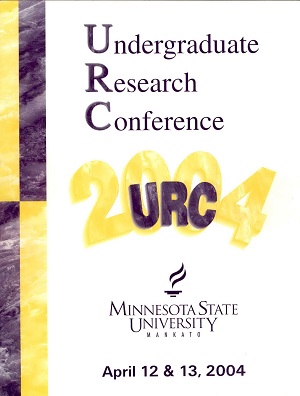Linguistic Analysis of Intraconversational Narratives of Speakers with Williams Syndrome and their Typically Developing Peers
Location
CSU 253/254/255
Start Date
12-4-2004 1:45 PM
End Date
12-4-2004 3:15 PM
Student's Major
Speech, Hearing, and Rehabilitation Services
Student's College
Allied Health and Nursing
Mentor's Name
Patricia Hargrove
Mentor's Department
Speech, Hearing, and Rehabilitation Services
Mentor's College
Allied Health and Nursing
Description
This study examined several linguistic characteristics of stories within conversations (intraconversational narratives) of speakers with Williams syndrome and their typically developing (age matched) peers. (Williams syndrome is a genetic disorder generally accompanied by specific physical characteristics, developmental delay, and unique communication skills.) Trained judges transcribed audiotapes of the stories and then collected and analyzed four measures: frequency, antecedent events, content, and form. The antecedent events yielded the only significant differences with the speakers with Williams syndrome using independent narratives more frequently and the typically developing speakers using dependent narratives more frequently. This suggests that speakers with Williams syndrome are more likely to speak "off topic." However, for the most part, the intraconversational narratives of speakers with Williams syndrome appear similar to those of their typically developing peers.
Linguistic Analysis of Intraconversational Narratives of Speakers with Williams Syndrome and their Typically Developing Peers
CSU 253/254/255
This study examined several linguistic characteristics of stories within conversations (intraconversational narratives) of speakers with Williams syndrome and their typically developing (age matched) peers. (Williams syndrome is a genetic disorder generally accompanied by specific physical characteristics, developmental delay, and unique communication skills.) Trained judges transcribed audiotapes of the stories and then collected and analyzed four measures: frequency, antecedent events, content, and form. The antecedent events yielded the only significant differences with the speakers with Williams syndrome using independent narratives more frequently and the typically developing speakers using dependent narratives more frequently. This suggests that speakers with Williams syndrome are more likely to speak "off topic." However, for the most part, the intraconversational narratives of speakers with Williams syndrome appear similar to those of their typically developing peers.




